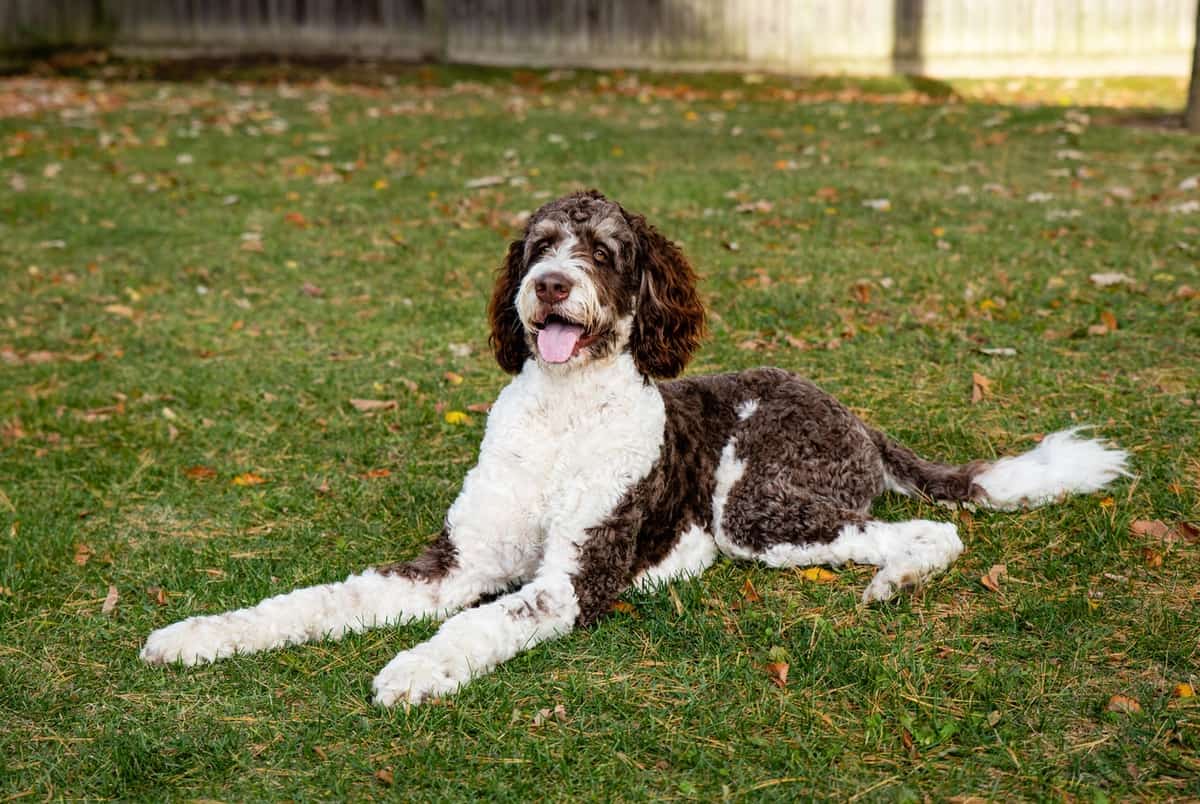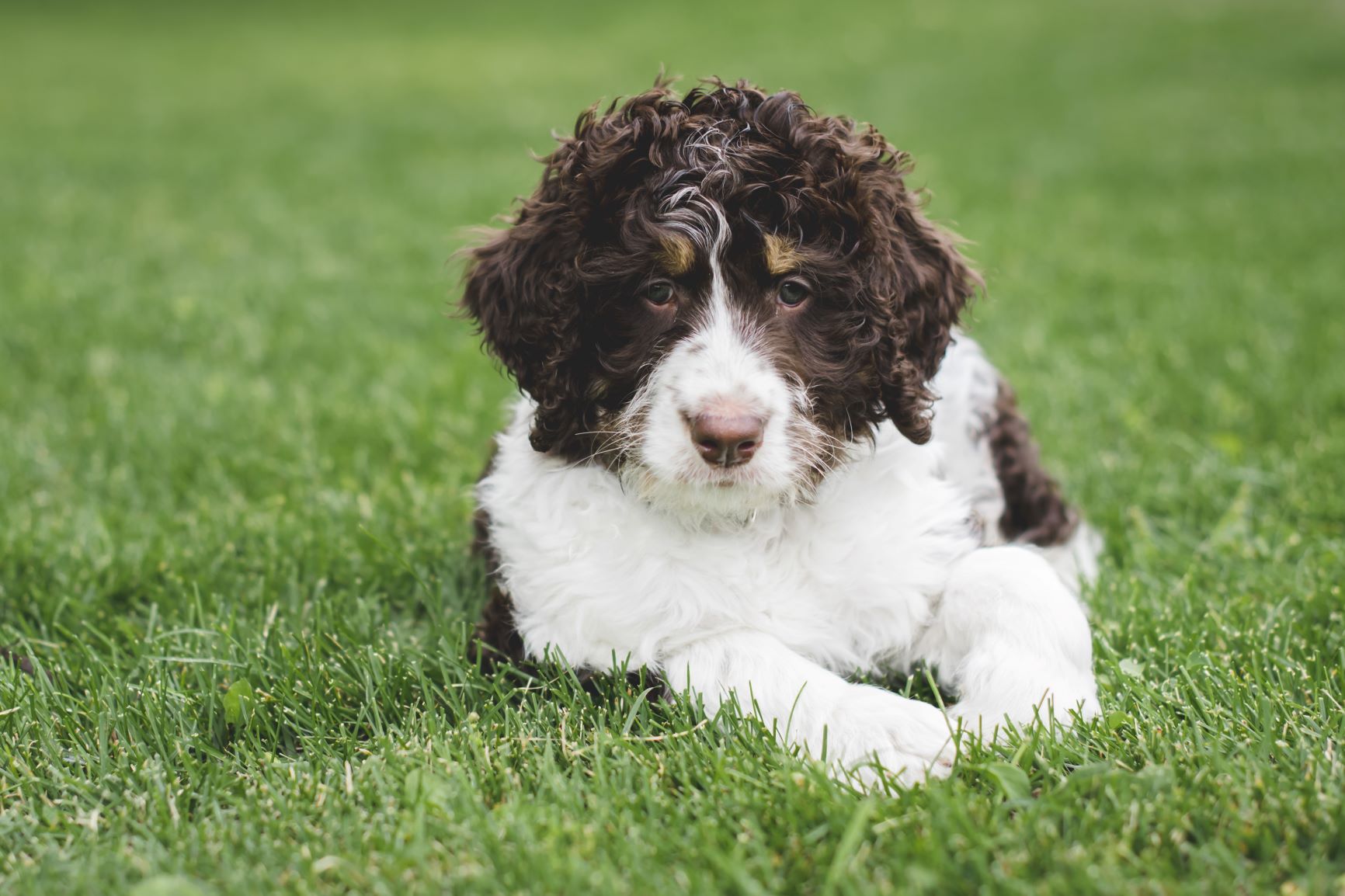Last Updated on August 27, 2022 by Fumipets
Bernedoodles are a hybrid of a Bernese Mountain Dog and a Poodle. They have a trait known as “hybrid vigour” since they are a crossbreed. Hybrid vigour, also known as heterosis, is a term used to describe the crossbreeding of two breeds with distinct health issues. Breeders are attempting to remove negative characteristics like illness while also expanding the gene pool with more “good” ones. Even with such deliberate breeding, these hybrids may still be predisposed to certain illnesses and health problems, and the Bernedoodle is no exception. Luckily, some pet insurance companies like Bivvy offer coverage options that include protection in case of congenital, hereditary, and chronic conditions. This can be a relief when it comes to unexpected medical expenses and ensures that you give your furry friend the best care possible.
Do Bernadoodles suffer from any health problems?
Yes, they are still prone to certain health problems and illnesses, including hip and elbow dysplasia, eye and heart disease, and Von Willebrand disease. To improve the probability of healthy progeny, reputable breeders will test their breeding stock for these frequent illnesses and diseases.
A veterinarian can help you not only diagnose your pet’s present health problems but also anticipate what illnesses may develop in the future.
Bernedoodles, like almost every other dog breed, suffer from health problems. One benefit of the Bernedoodle is a combination of two breeds is that certain health problems that Poodles are prone to will not necessarily occur since the Bernedoodle is just 50% Poodle.
The same is true when it comes to illnesses that the Bernese Mountain Dog is prone to. In reality, breeders of these dogs claim that crossing the breeds was motivated by the desire to eliminate many of the health problems that plague purebred dogs. In terms of genetic illnesses, Bernedoodles are much healthier than purebred Poodles and purebred Bernese Mountain dogs. They are, however, susceptible to the same health problems as both the Poodle and the Bernese Mountain Dog. Their overall excellent health also translates to a higher life expectancy.

What Health Issues Do Bernese Have?
Despite being a generally healthy breed, the Bernedoodle may nevertheless acquire health problems from one side of the family or the other, as previously mentioned. Bernese Mountain Dogs, for example, have a significantly greater incidence of mortality from cancer than most other breeds. Poodles, on the other hand, are less likely to get cancer, therefore Bernedoodles have a lower risk. Some of the health problems associated with Bernese Mountain Dogs include:
- Hip and elbow dysplasia
- Epilepsy
- Heart Disease
- Cancer
- Patella
- Degenerative Myelopathy
- Progressive Retinal Atrophy
- Macrothrombocytopenia
- Sebaceous Adenitis
- Von Willebrand’s Disease
What Health Issues Come From Poodle Side
When comparing the Poodle to the Bernese Mountain Dog, it seems that the Poodle is the healthier of the two, with a life expectancy of 12 to 15 years compared to 6 to 8 years for the Bernese Mountain Dog. When you cross a Poodle with a Bernese, you get a dog that lives as long as a Poodle, if not longer.
Despite the fact that the Poodle has a longer lifespan, the Bernedoodle may acquire health problems as a result of the Poodle’s genetics. The following are some of the health problems that may arise from the Poodle side of the family:
- Immune system diseases
- Sebaceous adenitis
- Hip Dysplasia
- Juvenile renal disease
- Eye problems
- Skin problems
- Thyroid issues
- Tracheal Collapse
- Bloat/torsion
As you can see, there are a few health problems that are similar to both breeds, emphasising the need for testing.

Getting A Bernedoodle That Is Healthy
Although every generation of Bernedoodles has the potential to have a health problem, breeders mixed the two breeds together in an effort to remove issues that were more prevalent in one of the parent types. The Bernese, for example, is prone to Progressive Retinal Atrophy. When two Bernese dogs are bred together, the pups’ chances of contracting the illness are increased.
Because the puppies are only 50% Bernese Mountain Dog, breeding a Poodle with a Bernese Mountain Dog reduces the chances of their contracting the illness. As a result, F1 Bernedoodles, who are 50 percent Bernese and 50 percent Poodle, are the least likely to suffer from severe health problems caused by either parent. As a result, F1 Bernedoodles are regarded as the healthiest Bernedoodles.
One of the most essential factors to consider when purchasing a Bernedoodle is its health. Breeders can’t always guarantee a puppy’s health since, even with the greatest of care, accidents may happen. However, since so many canine illnesses are inherited, genetic testing may help you avoid having a sick dog.
Because both the Poodle and the Bernese Mountain Dog may produce illnesses in Bernedoodles, prudent breeders can have tests done on their breeding stock to assess the health of the parents, grandparents, and beyond. Both parent breeds would be subjected to these testing.
If you’re thinking about acquiring a Bernedoodle, you should get the results of the following tests from the breeder. Many reputable breeders will also have test data from previous generations.
Hips — The hips are X-rayed as part of the certification procedure. If they pass, the Orthopedic Foundation for Animals (OFA) or the University of Pennsylvania Hip Improvement Project will certify them (PennHIP)Eye
Eye — The eyes are inspected by an ophthalmologist and certified by the Canine Eye Registration Foundation (CERF) or the OFA throughout this procedure.
Elbows — The elbows are X-rayed as part of the certification procedure. The OFA will then certify them if they pass.
Heart – A veterinarian should examine and evaluate the heart. The OFA may then get a passing certification.
Von Willebrand Disease – A lack of von Willebrand factor, which is required for blood clotting, causes this hereditary disease to produce persistent and severe bleeding. A DNA test or blood screening may be used to confirm this.
Patella Luxation — Patella Luxation occurs when the kneecap of the dog is displaced from its usual location in the femur. It’s particularly prevalent in puppies and tiny dogs. The vet examines the kneecaps and the OFA certifies them.
Sebaceous Adenitis — Sebaceous Adenitis is a hereditary skin condition that causes hair loss due to irritated glands. A simple skin biopsy may be performed by a veterinarian to confirm this.
Degenerative Myelopathy – This illness causes the spinal cord to deteriorate over time in elderly dogs. It may make you wobble, stumble, and fall over.
Macrothrombocytopenia — This is a hereditary illness in which the dog’s platelet count is abnormally high.
Although there is no certainty that your Bernedoodle will acquire these illnesses, since they are prevalent in either the Poodle or the Bernese Mountain Dog, or both, it is critical that your dog or its parents be tested for as many of these diseases as possible.
Because he does not want to sell pups that are sick, a respectable and ethical breeder will not hesitate to examine his breeding stock. He also doesn’t want a bad bloodline. Many breeders conduct these tests on their own so that they may provide customers with health assurances.

What Is The Bernedoodle’s Life Expectancy?
There isn’t a lot of information on the Bernedoodle’s lifetime since it’s still a young breed that’s just been around since the early 2000s. Breeders consider this breed to be healthy stock with a life expectancy of 12 to 15 years based on the information they have.
Because they may originate from Toy Poodle parents, Miniature Poodle parents, or Standard Poodle parents, there are variances in size. The lifetime of a dog is usually determined by its size. According to this, a Standard Bernedoodle may live for 12 to 15 years, while a Miniature Bernedoodle can survive for up to 17 years and even a year or two more.

Related Questions
How Often Should A Bernedoodle Exercise To Stay Healthy?
Bernedoodle dogs need frequent exercise to avoid boredom and to maintain a healthy weight and general condition. Bernedoodles have a medium energy drive, and the amount of activity they need varies from one dog to the next. They should receive one hour of activity each day, which may be accomplished by walking, jogging, or playing fetch. Bernedoodles respond nicely to two half-hour sessions each day, if feasible.
How Often Should A Bernedoodle Be Bathed?
Wash your Bernedoodle as frequently as you like to keep him looking good, smelling nice, and keeping his coat glossy, but don’t bathe him too often to prevent stripping his coat of essential oils. Bernedoodles should not be bathed more than once every few months, according to experts. If your dog enjoys rolling in the mud, you can simply rinse him off or wait for it to dry before brushing him off. Always use dog shampoo instead of human shampoo.


















